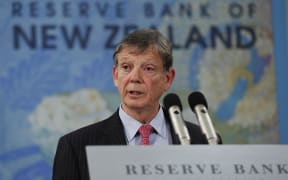Comments from the Federal Reserve in the United States last week might have sent a shiver up the spine of New Zealand's Reserve Bank governor, Graeme Wheeler.
The Fed said some of its members fear a rising US dollar could hurt US exports, slow inflation and harm American competitiveness.
The reaction in currency markets was swift and the New Zealand dollar jumped nearly two US cents before settling about a cent higher than before the Fed's comments.
Mr Wheeler has made it clear he thinks the New Zealand dollar's level is unjustified and unsustainable.
He is in good company: the European Central Bank would like a lower euro, the Bank of Japan would like a lower yen, China would like a lower renminbi and only last week the Reserve Bank of Australia said the Australian dollar is too high.
The trouble is, currencies are a zero sum game and not everybody can have a low exchange rate.
Bancorp Treasury Services senior client advisor Peter Cavanaugh said the Fed's comments are potentially alarming because they hint at the US engaging in currency wars with the other major economies.
"Not everybody can have a weak currency. Somebody has to have a weak currency, somebody has to have a strong currency," he said.
However, the Bank of New Zealand's foreign exchange strategist, Raiko Shareef, said fears of currency wars are alarmist and he expects the US dollar to continue to rise over time.
On Friday, the Fed's vice chair, Stanley Fischer, said his bank will not intervene to prevent other countries getting the benefit of their currencies depreciating against the US dollar.
Mr Fisher said the Fed has to run policies appropriate to the United States.



